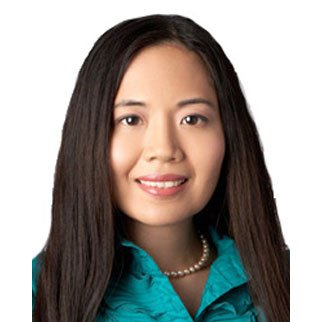
Sheila Dabu Nonato, The Catholic Register
Sheila was a reporter for The Catholic Register from 2008-2011.
A graduate of the University of Toronto's international relations program (M.A.) and Carleton University's School of Journalism (M.J.), she has worked at The Canadian Press, CBC Ottawa, The Toronto Star, The Jordan Times and IRIN Middle East.
Website URL: http://twitter.com/SheilaNonato
April 12, 2011
‘Culture of death’ is not the way to solve problems
 TORONTO - In the face of cultural pressure to accept abortion, contraception and euthanasia, Catholic doctors can respond by affirming the inherent human dignity of the person and appealing to human reason in explaining the “culture of life,” Catholic experts said at the third annual conference of the Canadian Federation of Catholic Physicians’ Societies.
TORONTO - In the face of cultural pressure to accept abortion, contraception and euthanasia, Catholic doctors can respond by affirming the inherent human dignity of the person and appealing to human reason in explaining the “culture of life,” Catholic experts said at the third annual conference of the Canadian Federation of Catholic Physicians’ Societies. This year’s gathering was organized by the St. Joseph Moscati Catholic Doctors Guild and held at Toronto’s University of St. Michael’s College April 8-10.
“If we allow abortion, suicide and euthanasia, the ‘culture of death’ means death is a way to solve problems,” Prof. Janet Smith, the Father Michael J. McGivney Chair of Life Ethics at Sacred Heart Major Seminary in Detroit and consultor to the Pontifical Institute of the Family, told more than 120 doctors and medical students in her keynote speech.
Published in
Canada
 TORONTO - Demands from the NDP’s education critic that the Ontario government force Catholic schools to accept gay-straight alliances are off base because Catholic schools already have government-approved equity programs for students, regardless of their sexual orientation, according to Catholic education groups.
TORONTO - Demands from the NDP’s education critic that the Ontario government force Catholic schools to accept gay-straight alliances are off base because Catholic schools already have government-approved equity programs for students, regardless of their sexual orientation, according to Catholic education groups. Nancy Kirby, president of the Ontario Catholic School Trustees’ Association, rejected the NDP’s assertion that gay-straight alliances should be the exclusive support group in all Ontario schools for students with same-sex attractions. Catholic schools have always promoted non-discrimination in the classroom and have supports in place for students with same-sex attractions, she said.
Following a decision by the principal at Mississauga’s St. Joseph Catholic High School to disallow a gay-straight alliance, NDP MPP Rosario Marchese said Ontario Premier Dalton McGuinty should compel Catholic school boards to establish GSAs in order to conform with the government’s equity policy.
Published in
Canada
March 30, 2011
One student’s fight to make roads safer
 TORONTO - Although some teens may not like the idea of being labelled a new driver, at least one believes a special plate to indicate a car’s driver has a provisional licence would make the roads safer.
TORONTO - Although some teens may not like the idea of being labelled a new driver, at least one believes a special plate to indicate a car’s driver has a provisional licence would make the roads safer.Alex Don, an 18-year-old student at Burlington, Ont.’s Assumption High School, proposed such an idea to provincial politicians, which has led to Bill-161, the Novice Driver “P” Plate Act, that was introduced in the Ontario Legislature and passed first reading March 10.
“It’s difficult to get the G2 (graduated licence) and start driving on the highway,” said Don whose idea sparked the private member’s bill for the “P” licence plate.
“There have been some naysayers who say they’re a great driver and don’t need to be branded,” said Don, but a majority of the teens he’s spoken with agree with the idea of a “P” plate.
Published in
Canada
March 30, 2011
ShareLife Sunday marks 35 years of charitable giving
 TORONTO - This year, April 3 comes with great significance for ShareLife.
TORONTO - This year, April 3 comes with great significance for ShareLife.On that day, the archdiocese of Toronto’s charitable fundraising arm marks its 35th anniversary. And it will also be ShareLife Sunday, the first of three special appeals for aid in the pews of the archdiocese’s Catholic parishes. The other two ShareLife Sundays are set for May 1 and June 5.
This year’s campaign represents three-and-a-half decades of Toronto’s Catholics extending a helping hand to those in need, said Bill Steinburg, ShareLife’s communications manager.
Published in
Canada: Toronto-GTA
March 23, 2011
TCDSB to reschedule equity policy symposium
 TORONTO - The Toronto Catholic District School Board has cancelled its upcoming symposium on the province’s equity policy, which was set to begin on March 26, with some hinting that it was because of a controversial keynote speaker.
TORONTO - The Toronto Catholic District School Board has cancelled its upcoming symposium on the province’s equity policy, which was set to begin on March 26, with some hinting that it was because of a controversial keynote speaker.Board chair Ann Andrachuk denied that was the case, saying the cancellation was “an issue with aligning panelists” and that it would be rescheduled.
“Everybody’s got other commitments,” she said.
But trustee John del Grande, in a March 23 newsletter to constituents, said that in addition to the scheduling conflict of panelists, some parents had raised concerns about a speaker, Chris D’Souza, a course director at the York University Faculty of Education. D’Souza is also a former equity and diversity officer with the Dufferin Peel Catholic District School Board.
Published in
Education
March 23, 2011
Catholic groups have concerns over full-day kindergarten
 TORONTO - While Ontario’s full-day kindergarten program is in high demand and considered by several Catholic education groups an “investment” in the future, there remain concerns.
TORONTO - While Ontario’s full-day kindergarten program is in high demand and considered by several Catholic education groups an “investment” in the future, there remain concerns.The provincial government introduced the full-day kindergarten program in September 2010 at about 600 schools across the province. By September 2012, there will be close to triple that number of schools offering the program.
Among the issues that need to be worked out are funding and after-school care, according to some Catholic groups. Dan Barrett, president of the Toronto Association of Parents in Catholic Education, says once the full-day kindergarten classes end for the day, making an arrangement for care afterwards can be “problematic.”
Published in
Education
March 22, 2011
Baby Joseph gets his tracheotomy
 Doctors at a St. Louis hospital performed a tracheotomy March 21 on Baby Joseph, the seriously ill 14-month-old who has been at the centre of an international tug-of-war over end-of-life care.
Doctors at a St. Louis hospital performed a tracheotomy March 21 on Baby Joseph, the seriously ill 14-month-old who has been at the centre of an international tug-of-war over end-of-life care.It's a procedure the Maraachli family has fought for ever since the Ontario Superior Court ordered them to give their consent to remove their child's breathing tube on Feb. 18. He has a neurodegenerative disease and needs a breathing and feeding tube to survive.The family defied the legal order and the advice of London Health Sciences Centre doctors who said his condition would not improve with the procedure, would be "invasive" and futile.
“Following a thorough examination by a multi-disciplinary medical team of specialists from SSM Cardinal Glennon and Saint Louis University School of Medicine, along with extensive consultations with Joseph's parents and the SSM Cardinal Glennon ethics committee, we concluded that a tracheotomy was medically appropriate,” said the SSM Cardinal Glennon Children's Medical Centre in a statement.
Published in
Canada
March 16, 2011
Marie Wilson to give Royackers lecture
 Marie Wilson will be the keynote speaker at Regis College’s second annual Martin Royackers Lecture on April 6.
Marie Wilson will be the keynote speaker at Regis College’s second annual Martin Royackers Lecture on April 6.A commissioner with the Truth and Reconciliation Commission examining Indian residential schools, Wilson will speak on “Fostering Cultural Reconciliation in Canada: Healing Relations with Aboriginal Peoples through Truth-telling.” It takes place at 7 p.m. in Regis’ St. Joseph Chapel. Fr. Gordon Rixon, S.J., dean of Regis College, said Wilson was invited to reflect upon “what it means to go forward, prepare people in ministry in the Church, post-residential school in Canada.”
The Truth and Reconciliation Commission was established in 2008 as part of the court-approved Residential Schools Settlement Agreement negotiated between legal counsel for former students, legal counsel for the government of Canada, the churches that ran the schools, the Assembly of First Nations and other aboriginal organizations. It is set to complete its work in 2013.
Published in
Canada: Toronto-GTA
March 16, 2011
Michael Voris gives a voice to the voiceless faithful
 TORONTO - American Catholic YouTube sensation Michael Voris doesn’t mince words.
TORONTO - American Catholic YouTube sensation Michael Voris doesn’t mince words. His direct, no-nonsense approach to hot-button issues like abortion and contraception may rub some the wrong way. But a dedicated following, including young Catholics like 24-year-old Therese Miller of Cambridge, Ont., has discovered him online and say they find his countercultural message inspirational as they live out their faith in their schools and workplaces.
Voris’ appeal is extending north to Canada, where he had recent exposure on the Michael Coren Show and he was scheduled to speak at a March 19 World Youth Day fundraiser in Kitchener, Ont.
Voris is an Emmy award-winning broadcaster who founded St. Michael’s Media in 2006. His YouTube show The Vortex averages thousands of viewers and has been downloaded more than five million times over the past two years.
Published in
Canada
March 16, 2011
‘Monastic chic’ is always in for religious
 TORONTO - Religious garb is in, says Forbes magazine. The churchly trend was quite evident at one of the world’s premier fashion events, New York Fashion Week, where models paraded outfits topped with hoods reminiscent of the cloister. The twist was that designers added leather jackets, dresses and catsuits to create a look that Forbes dubbed “monastic chic.”
TORONTO - Religious garb is in, says Forbes magazine. The churchly trend was quite evident at one of the world’s premier fashion events, New York Fashion Week, where models paraded outfits topped with hoods reminiscent of the cloister. The twist was that designers added leather jackets, dresses and catsuits to create a look that Forbes dubbed “monastic chic.”The cloister would seem an unlikely source of inspiration for the world’s top fashion designers in our increasingly secular society. After all, for nuns, it’s not fashion that motivates them to wear a habit. Religious garb is a symbol of their identity and commitment to serve God and the Church.
It may suddenly be all the rage in chic fashion circles, but for nuns such as Sr. Agnes Roger the habit was never out of fashion. She continues to debunk myths about the habit and the religious communities that continue to wear them, including the claim that the habit is a throwback to another age.
Published in
Features

